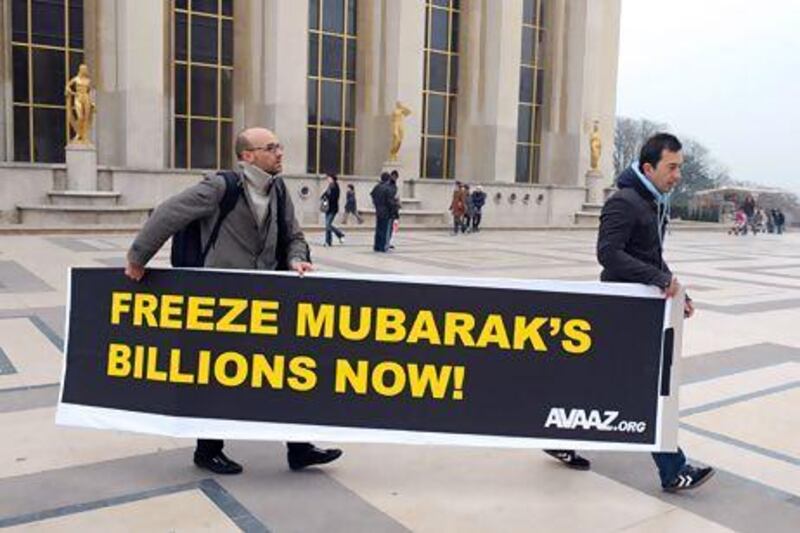More than two years after the Arab Spring toppled dictators in several countries in the Middle East and North Africa, the ill-gotten gains squirrelled away across the world by heads of the fallen regimes remain elusive.
The former leader of Egypt, Hosni Mubarak, allegedly stole billions during his 30 years in office, all of it still missing. Muammar Qadafi, the former Libyan leader, is thought to have taken some $80bn out of the country.
The billions of missing cash and valuables would provide a welcome boost for post-Arab Spring states hoping for economic recovery.
Masood Ahmed, the IMF director for the Middle East and North Africa, said the countries including Morocco, Tunisia, Egypt and Libya faced the double shocks of high energy and food bills and the impact of a global economic downturn.
"In a number of these countries, private confidence has not yet taken hold so the recovery such as it was in 2012 was driven by continued government spending rather than a recovery in private activity," he said. "The cost of that is that budget deficits have begun to rise and in some cases have risen to levels that are progressively unsustainable."
The European Union said the recovery of assets "stolen by the former dictators and regimes of Libya, Tunisia and Egypt" was a moral and legal imperative.
Members of the European parliament voted last month to press the EU and member states to accelerate the return of riches already frozen. A team of EU legal and financial experts will work with officials from the Arab Spring countries to find ways of speeding up the process. The resolution stressed the need to fuel those countries' economic recovery.
Members of the parliament expressed concern that new rules allowing EU countries to release frozen assets to Egypt and Tunisia, and strong political will on all sides, had led to only a "very limited success" in recovering misappropriated assets.
The EU's role is restricted to freezing the assets.
Switzerland proposed last month a new law to make it easier to freeze assets stolen and salted away by foreign leaders and return them to their countries of origin.
* with agencies and additional reporting by Colin Randall, Foreign Correspondent





